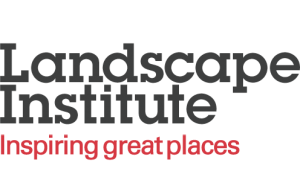Supported by the UK Built Environment Advisory Group, the Global Future Cities Programme carried out targeted interventions in 19 cities across the world to address barriers to prosperity and trade. Lionel Fanshawe, one of the LI’s representatives on the Group, reflects on the Programme.

Between 2018 and 2022, the UK Built Environment Advisory Group (UKBEAG) – comprising the Landscape Institute (LI), Royal Institute of British Architects (RIBA), the Royal Town Planning Institute (RTPI), and the Institution of Structural Engineers (ISE) – supported the Foreign, Commonwealth and Development Office and UN-Habitat with the delivery of their Future Cities Programme.
A 2015 government review recognised that rapid urbanisation and climate change are increasing threats to global stability. Responding to this, the FCDO and UN-Habitat devised the Global Future Cities Programme to provide technical assistance to cities that may help head off future crises. The Programme invested in 30 transportation, urban planning, and resilience projects in 19 cities across 10 low- to middle-income countries: Brazil, Indonesia, Malaysia, Myanmar, Nigeria, Philippines, South Africa, Thailand, Turkey, and Vietnam.
Recognising the professional expertise available among the collective UKBEAG membership, UN-Habitat appointed the Group as strategic capacity development partner for the Programme. The delivery of the Programme occurred in two phases: a strategic phase, which involved visiting cities and understanding their context and requirements; and an implementation phase, with thematic events, knowledge exchange, and regional leadership forums. This was assisted in each case by a local delivery partner of UK origin based in the countries concerned – Adam Smith, Arup, and Mott MacDonald – often with further assistance from others, such as Broadway Malyan in Southeast Asia.
The LI put out an invite for members in late 2020 to participate. Maddy Gunn and I were selected to be LI representatives – and we fast had to get up to speed on the vast amount of work going on and how we might offer meaningful inputs.
While the Programme had made a start a year before, COVID had caused substantial delays and also prevented much of the intended travel and face-to-face meetings. We were therefore in time to witness the delivery of the entire implementation phase, but not to influence its contents. We circulated a note to the Advisory Group on potential inputs LI members might offer and identified projects that might most benefit. We simultaneously reported back to the LI.
In the time available, the Project’s purpose – encouraging and enabling capacity within the 19 cities to take on challenges – could only be high-level and focussed on strategic issues, data, governance, and change; together facilitating an understanding of how best to confront major issues identified by the cities themselves. In the mop-up sessions at the end of the process, the subject areas were felt to largely accord with those anticipated by the programme at the outset, though the levels of engagement varied from city to city – with particularly high levels found in Southeast Asia, both in terms of resources and political backing.
Country-level events and city-to-city knowledge exchanges were enabled through the Programme, culminating in two regional leadership forums. The project concluded early in 2022 and was deemed a great success by all who participated.
The final report and executive summary (the latter in in English, Indonesian, Portuguese, Thai, Turkish, and Vietnamese versions) are available at globalfuturecities.org.
The LI put out a call in May 2021 to members who might be able to offer specific skill sets to the implementation phase – but sadly, no responses were forthcoming. Hopefully the local delivery partners included members in their midst. It is quite possible that the nature and level of the majority of the projects were far more about governance and strategy and less about the practicalities most members primarily engage with. However, this is exactly where we also need to position ourselves to be most influential and effective.
As part of the UKBEAG, we did attend a particularly good session with UN-Habitat representatives en route to COP26 last October and were able to discuss the profession’s particular capabilities.
The UKBEAG’s future intention is to pool the professional institutes’ resources as a ‘one-stop shop’ for impartial expert advice for use by governments and development partners around the world. To that end, it would be helpful to have a database of practitioners with particular skills and interests to offer such approaches. This is something that I have personally been trying to establish with an LI International Working Group for some time, and we do have the basis of this set up on the LI Connect international forum. I would be pleased to hear from anyone with such interests, either directly or on that forum. This is also something that the offshoot Humanitarian Landscape Collective have an interest in, and they were represented at the UN-Habitat meeting too.
Lionel Fanshawe, September 2022



